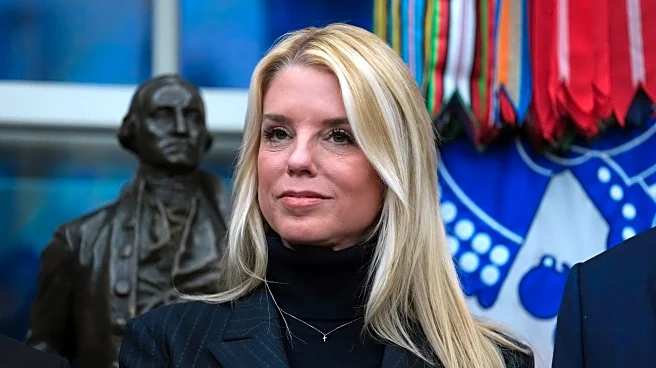Rapid Read • 8 min read
Tesla is preparing to launch a public taxi service in the San Francisco Bay Area, which it refers to as a 'robotaxi' service. However, due to legal restrictions, the service will utilize cars with human drivers rather than autonomous vehicles. The California Public Utilities Commission has confirmed that Tesla informed them of plans to expand an employee-only taxi service to include friends, family, and select members of the public. Tesla holds a 'Transportation Charter Party' permit allowing prearranged trips with a driver, but it is not permitted to operate an autonomous vehicle service in California. Tesla's vice president of AI software, Ashok Elluswamy, stated that the company is working with the government to gain approval for autonomous operations, but will proceed with human drivers in the interim.
AD
The development is significant as it highlights the ongoing challenges Tesla faces in deploying autonomous vehicle technology. California has stringent regulations on autonomous vehicles, and Tesla's attempt to market its service as 'robotaxi' despite using human drivers could impact its reputation and legal standing. The situation underscores the complexities of integrating autonomous technology into public transportation systems and the regulatory hurdles companies must navigate. Tesla's approach may influence public perception and investor confidence, especially as it faces legal scrutiny over its marketing practices related to driver assistance technologies.
Tesla's next steps involve continuing to seek regulatory approval for autonomous vehicle operations in California. The company may face increased scrutiny from regulators and legal challenges if it continues to market its service as autonomous without meeting legal requirements. Stakeholders, including investors and consumers, will be watching closely to see how Tesla navigates these challenges and whether it can successfully launch a fully autonomous taxi service in the future.
The situation raises ethical questions about transparency in marketing autonomous technologies. Tesla's use of terms like 'Autopilot' and 'Full Self-Driving' has been controversial, and the current scenario may further fuel debates about consumer protection and the responsibilities of tech companies in accurately representing their products. Long-term, this could lead to stricter regulations and standards for autonomous vehicle marketing and operations.
AD
More Stories You Might Enjoy












